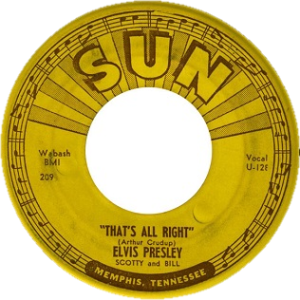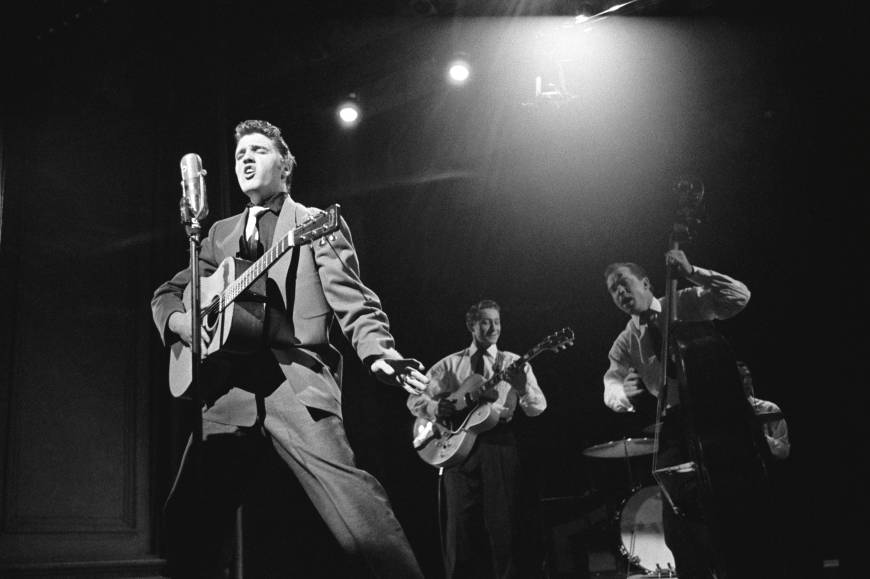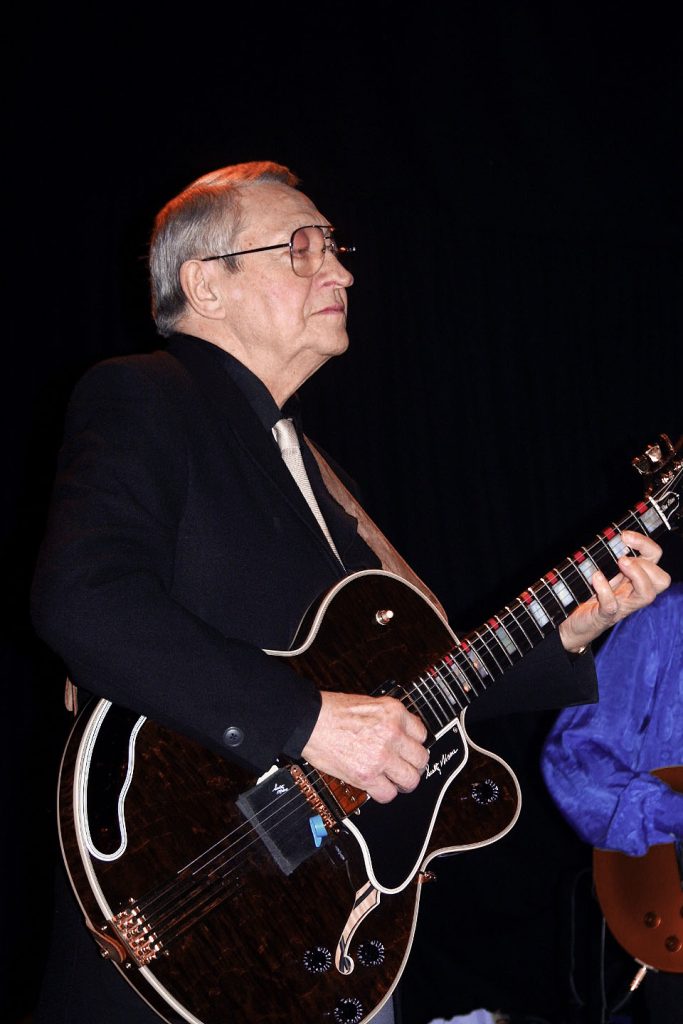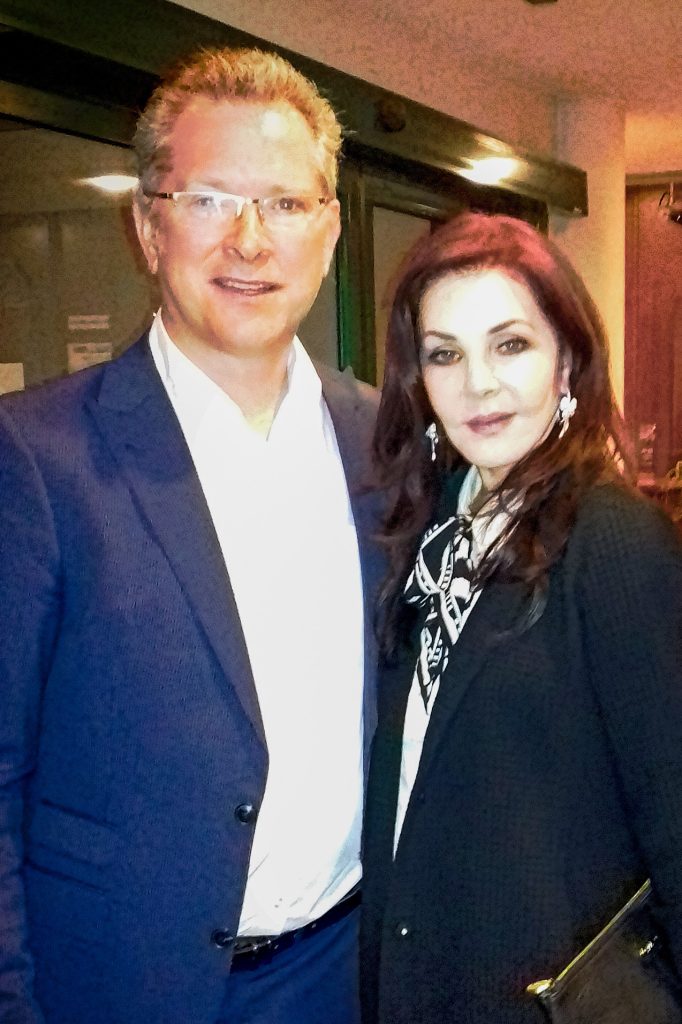On the 70th anniversary of Elvis’ “That’s All Right” recording, Noel Shine looks back with nostalgia on the song that changed the world.
The seventieth anniversary of the recording of Elvis’ first record, “That’s All Right,” a seminal moment in music history, happened this past July 5. Sam Phillips, proprietor of Memphis Recording Studios, was at the control desk on that fateful night in 1954. A pioneer in the music business, he recorded acts from across the racial divide of the segregated Deep South. In 1951, he produced Jackie Brenton’s “Rocket 88” before licensing it to Chess Records for national distribution. When it hit the top of Billboard’s R‘n’B charts, Sam decided to launch his record label, Sun Records, to capitalize on this emerging market. The logo on the iconic label – a rooster heralding a new dawn – tells you all you need to know about the scope of his ambition.

When 19-year-old Elvis entered the Memphis Recording Studio on July 5, 1954, it was more in hope than expectation. Over the previous year, he had paid for two demo sessions at the studio in the expectation of impressing his talent as a balladeer upon Sam Phillips. Marion Keisker, who produced Elvis’ first demo in July 1953, championed Elvis’ cause with Sam, prompting him to invite Elvis back to record another ballad in June 1954. This session proved fruitless, with Phillips suggesting that Elvis team up with guitarist Scotty Moore and bassist Bill Black before returning for the next session. The three men met at Scotty’s house on July 4 without finding common ground, musically speaking. With the benefit of hindsight, it seems almost providential now that these three young hopefuls should first meet on Independence Day before going on to create that most American of all music genres – rock ‘n’ roll.
The session on July 5 started with Elvis rendering his version of “Harbor Lights,” a song composed by Irishman Jimmy Kennedy. This was followed by “I Love You Because,” but Elvis’ delivery was uninspired and lacking in emotional intensity.
Unable to coax anything of merit from his young protégé, Sam suggested that the boys take a break. Elvis, Scotty, and Bill could feel this opportunity ebb away from them. Then Elvis began playing his guitar more upbeat, offering his take on Arthur “Big Boy” Crudup’s “That’s All Right.” Bill Black, the joker in the pack, entered into the spirit of this seeming parody, slapping on his stand-up bass while Scotty picked out the chords. Sam’s ears pricked up in the control booth. It was the eureka moment that he had long intuited but dared not articulate, namely, that if he could find a white boy who could sing with the soul of an R‘n’B artist, his fortune would be made.
Elvis had inadvertently stumbled upon the sound that would become the hallmark of his best work at Sun Records and pre-army RCA.
Presley would become, both figuratively and literally, the poster boy for rock‘n’roll. A natty dresser with a gravity-defying pompadour, he came packed with the iconography that best defined that golden era: The guitar, the Shure 55 microphone, the tail-finned Pink Cadillac, and later, the antebellum mansion. He shook America from its post-war stupor and made all the young girls cry. Elvis’s rise needs no further rehearsal here. Suffice it to say that while Scotty and Bill may have been integral to the sound that skyrocketed Elvis to fame, they never shared in the generosity that came Elvis’ way. They were paid per diem and effectively employed as hired hands. Their unique sound faded into the mix as Elvis gravitated towards Hollywood.
In 1957, Scotty and Bill quit in a very public spat. Scotty may have returned, but “the scales had fallen from his eyes.” He continued to work with Elvis right up to and including the Elvis’ 1968 “Comeback Special.” At this juncture, Elvis sought to create a more contemporary sound, necessitating a clean sweep of all the old personnel and relocating to the famed American Sound Studios in Memphis. Scotty put aside his guitar and returned to Nashville to run his own recording studio. He never saw Elvis again.
The influence of Elvis’ Sun Record phase on popular culture is invaluable. When Scotty started touring again in the late 1990s, the likes of Paul
McCartney, Keith Richards, Ronnie Woods, Robert Plant, and Jimmy Page all came to pay homage.
McCartney bought Bill Black’s stand-up bass at auction and recorded “That’s All Right” with Scotty and drummer DJ Fontana in 2001.
Jack White of the White Stripes similarly purchased the original demo acetate of Elvis singing The Inkspots’ “My Happiness” and “That’s When Your Heartaches Begin.”
That influence pervades every frame of Jim Jarmusch’s film Mystery Train (1989) and, to a lesser extent, David Lynch’s Wild at Heart (1990). I could go on, but as impressive as these reference points are, they are faint echoes of that original blue note. In recent times, Sony/BMG has remastered Elvis’ entire back catalogue, including all known Sun material. Stripped of artifice and “electronically processed” reverb, they sound as good today as when first recorded.
In March 2004, I caught Scotty Moore at ‘The Village’ club in Dublin. It was the realization of a dream that began when I first heard “Elvis, The Sun Collection” in the 1980s. A dapper gent of 72 years, Scotty had lost none of the talent that set him apart as a guitar virtuoso five decades earlier. Ably supported by a group of handpicked musicians Paul Ansell, Liam Grundy, Pete Pritchard, Dave Briggs, and Jim Russell, they dovetailed perfectly with Scotty’s trademark guitar licks to recreate such Elvis classics as “Good Rockin’ Tonight,” “Baby, Let’s Play House,” “Heartbreak Hotel,” “Don’t Be Cruel,” “King Creole” and “Such a Night,” among others.
There is nothing quite like a live gig to revive a drooping spirit. When the artist is a pioneer in their field, there is an added frisson of excitement. That night, there were many ghosts in the building, not least those of a teenage Elvis and Bill Black.
Consequently, any joy I experienced at this gig was tempered with regret that I never got to see Elvis on this side of the Great Divide.
They say never meet your idols lest they prove to be too mortal and disappoint. On August 16, 1977, Elvis proved all too mortal without ever deigning to grace our Irish shores. In the trek to Dublin, Scotty made good on a promise that Elvis could not. If that is as close as I will ever get to experiencing an early Elvis stage show, well, “That’s All Right.” ♦
Note: Elvis’ great-great-great-great-grandfather, William Presley, left his farm in Stranakelly, County Wicklow in 1775 and moved to Tennessee. A court document from 1775 proves his Irish ties.




Leave a Reply